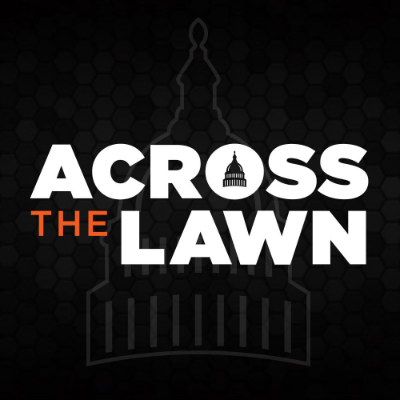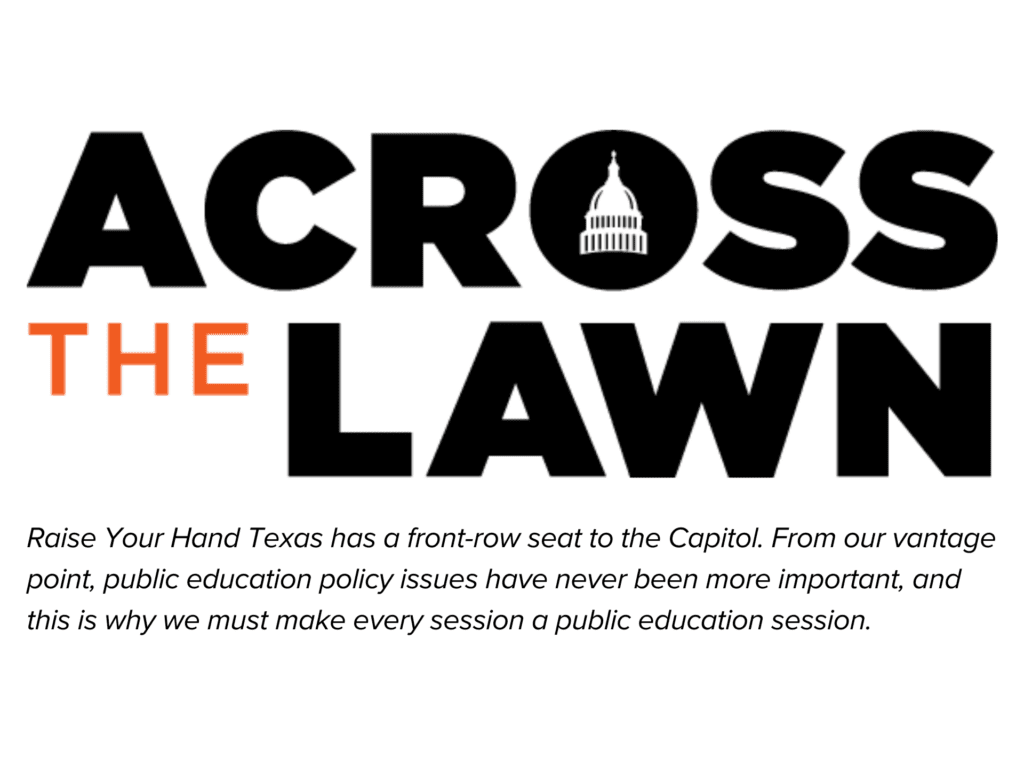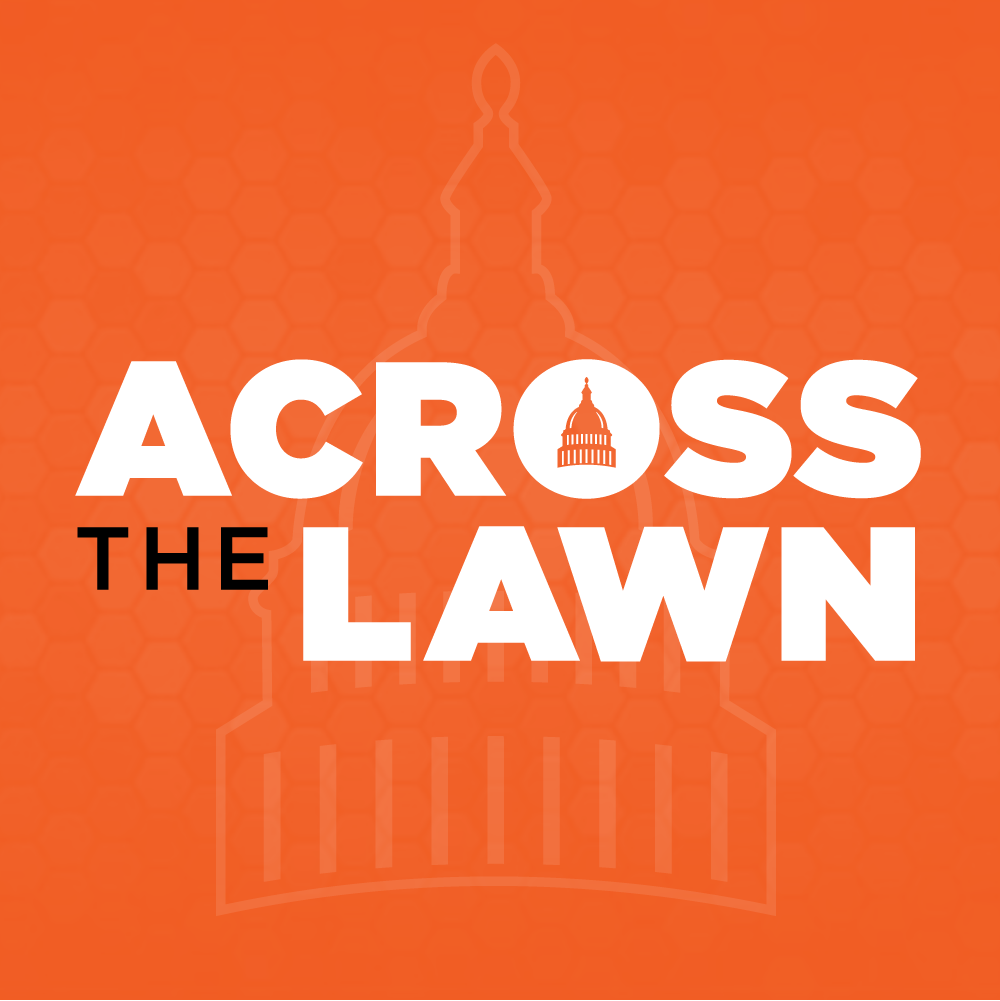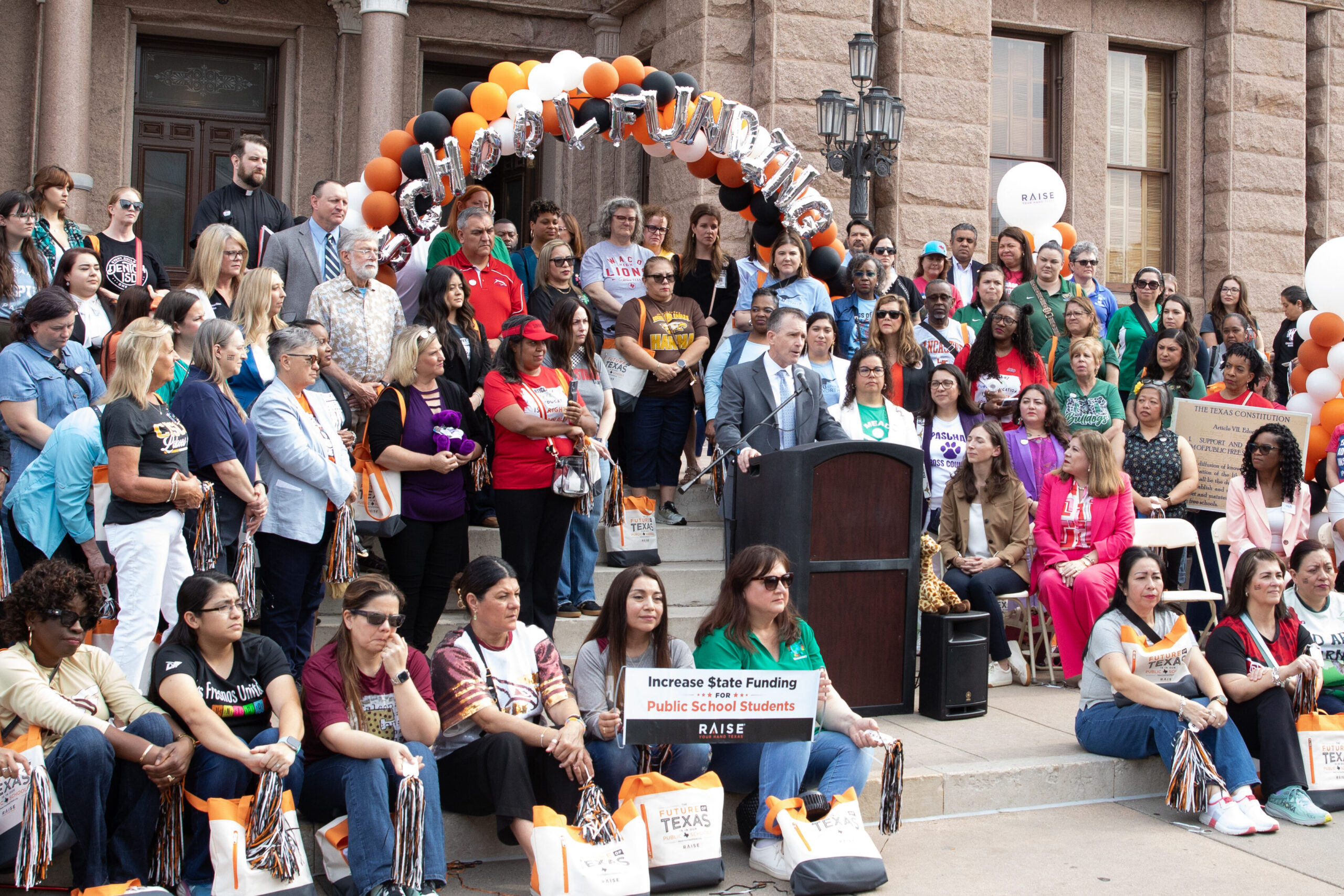
categories
Across the Lawn – April 4, 2025

April 04, 2025

One Thing to Do: Be The First To Know – Join Our Text List
With timely legislative votes right around the corner for school funding and teacher pay bills, now is the time to join our text list and invite a friend to join it too!
Five Things to Know:
1. School Funding Bill (HB2) Moves Forward in Texas House
After delaying the scheduled meeting earlier in the week, the Texas House Committee on Public Education voted to move HB 2, the school funding bill, on Thursday, April 3, to the full House. Rep. Buckley offered a committee substitute, which changes several provisions in the bill. The bill now provides $7.7 billion in funding for the next two years, up slightly from the originally filed bill.
One of the main cost drivers is increasing the current $6,160 basic allotment to $6,500, providing an increase to special education funding formulas, and increasing the small- and mid-size adjustments.
This 128-page bill contains various other funding provisions, including creating a fine art allotment, including pre-K students within the funding for the Early Education Allotment, expanding the Teacher Incentive Allotment, and providing additional optional funding for increasing the days in a school year.
The bill also contains provisions related to teacher certification issues. Under the bill, school districts cannot hire uncertified teachers for foundation curriculum courses after September 1, 2031. There is an off-ramp for school districts over the next four school years:
- 2026-27: Up to 20% of teachers can be uncertified
- 2027-28: Up to 15% of teachers can be uncertified
- 2028-29: Up to 10% of teachers can be uncertified
- 2029-30: Up to 5% of teachers can be uncertified
2. House Voucher Bill Passes from Committee, New Provision Removes $1 Billion Cap after First Year, Sets Up Program that Costs $4.8 Billion per year by 2030
The Committee on House Public Education also heard the House Committee Substitute for SB 2 related to Education Savings Accounts. This is a universal voucher program open to every student in public school, an accredited private school, or homeschool. The program’s first year starts during the 2026-27 school year and provides up to $2,000 for homeschool students, 85% of what public school students receive under state and local revenue, and up to $30,000 for eligible special education students. The bill has several new provisions worth noting:
- One of the major changes in the substitute is the $1 billion appropriations cap, which is removed after the 2026-27 school year. Moving forward, the Comptroller must detail in legislation appropriations request the amount needed to fund participating students, those on the waiting list as of January 1 before the biennium, and eligible siblings.
- For the 2026-27 school year, students from families earning more than 500% of the federal poverty level may account for no more than 20% of total expenditures.
- Requires students to be U.S. citizens or have been lawfully admitted to the United States.
- Annual testing (nationally normed assessment or STAAR) is for only grades 3-12, no longer earlier grade levels.
- Students returning to public school mid-year would be excluded from A-F accountability, and the district is entitled to receive an allotment in an amount equal to the basic allotment multiplied by 0.1 for the child ’s average daily attendance at the district or school for that school year.
According to the fiscal note, after the first year, which is capped at $1 billion, the ESA program could reach $3.3 billion in fiscal year 2028, $3.7 billion in fiscal year 2029, and $4.8 billion in fiscal year 2030.
3. House Version of State Budget Passes from Committee
The Committee on House Appropriations passed its version of the state budget earlier this week. It will be heard by the full House on Thursday, April 10.
The major funding items for education include:
- School Funding Formulas ($7.6 billion): A total of $3.8 billion per year
- Education Savings Account ($1 billion)
- School Safety Allotment ($400 million): $200 million per year
- CTE for Rural Schools ($495 million): $224.9 million in FY 2026 and $270.9 million in FY 2027 is allocated for career and technology education programs, contingent on the passage of HB 120 or similar legislation.
- Math and Literacy Academies ($502 million): $263.5 million in FY 2026 and $239 million in FY 2027 is allocated to support early literacy and numeracy programs, contingent on the passage of HB 123 or similar legislation.
- Expansion of Virtual Schools ($62 million): $30.5 million in FY 2026 and $32.1 million in FY 2027 is allocated for virtual education expansion, contingent on the passage of HB 2196 or similar legislation.
4. Committee on Senate Education K-16 Hears Bill on A-F Accountability
The Committee on Senate Education K-16 heard numerous bills on Tuesday, including SB 1962 by Sen. Bettencourt related to public school accountability. The bill gives the Commissioner of TEA additional authority, including:
- Restricting the ability of school districts and charter schools to contest academic ratings
- Prohibiting school districts from using taxpayer funds to legally challenge certain state actions
- Eliminating policy allowing schools to be designated as “Not Rated”
- Assigning TEA’s technical advisory committee to determine the validity and reliability of state assessments
- Allowing the commissioner to exclude or adopt certain performance indicators
5. TEA to Release the 2023 A-F Accountability Ratings
A Texas appeals court has cleared the way for the Texas Education Agency to release the 2023 A-F accountability ratings for school districts, reversing a previous district court injunction.
The ruling came from the 15th Court of Appeals, a newly created court. The court sided with TEA Commissioner Mike Morath, stating he acted within his legal authority.



